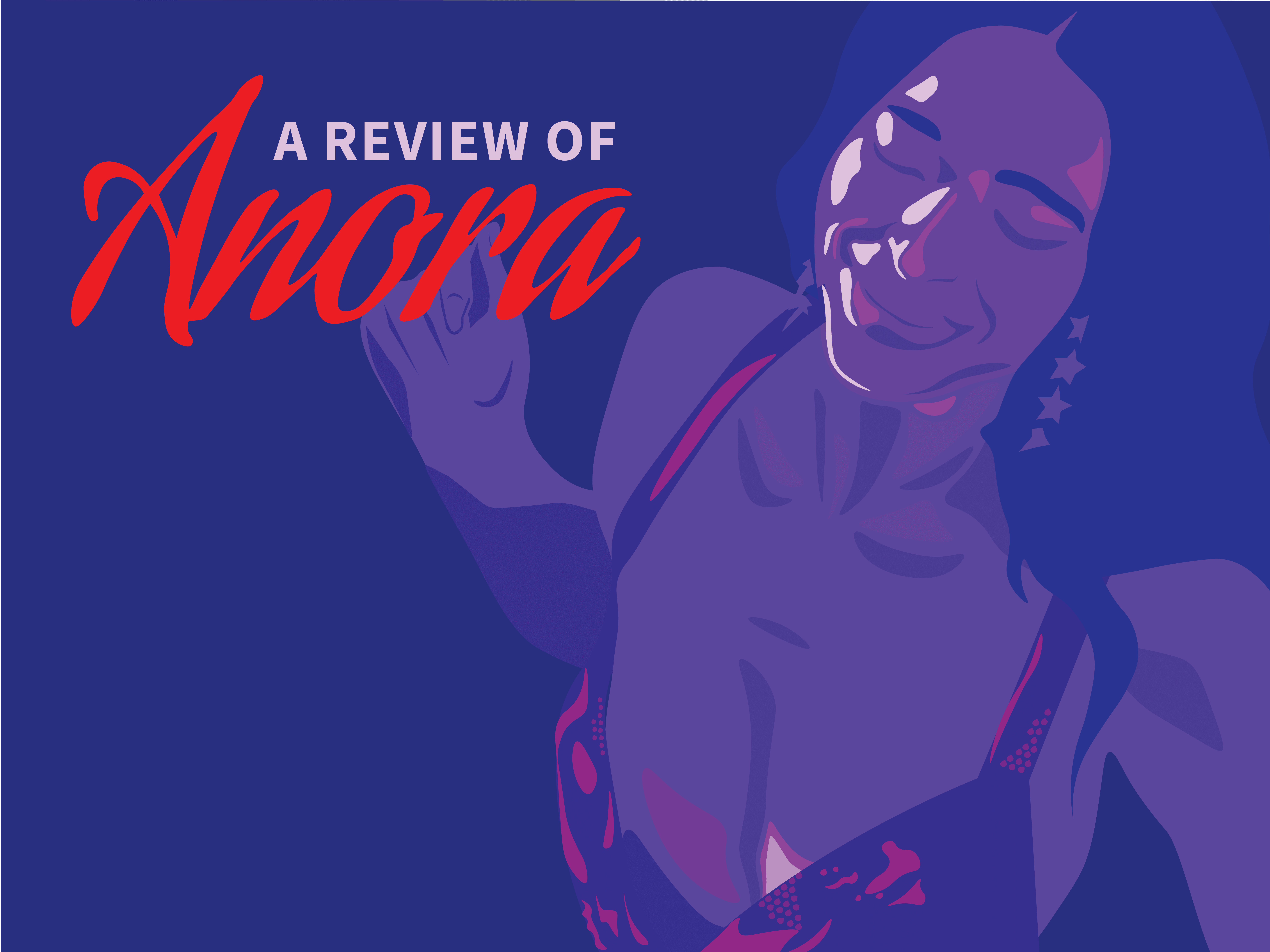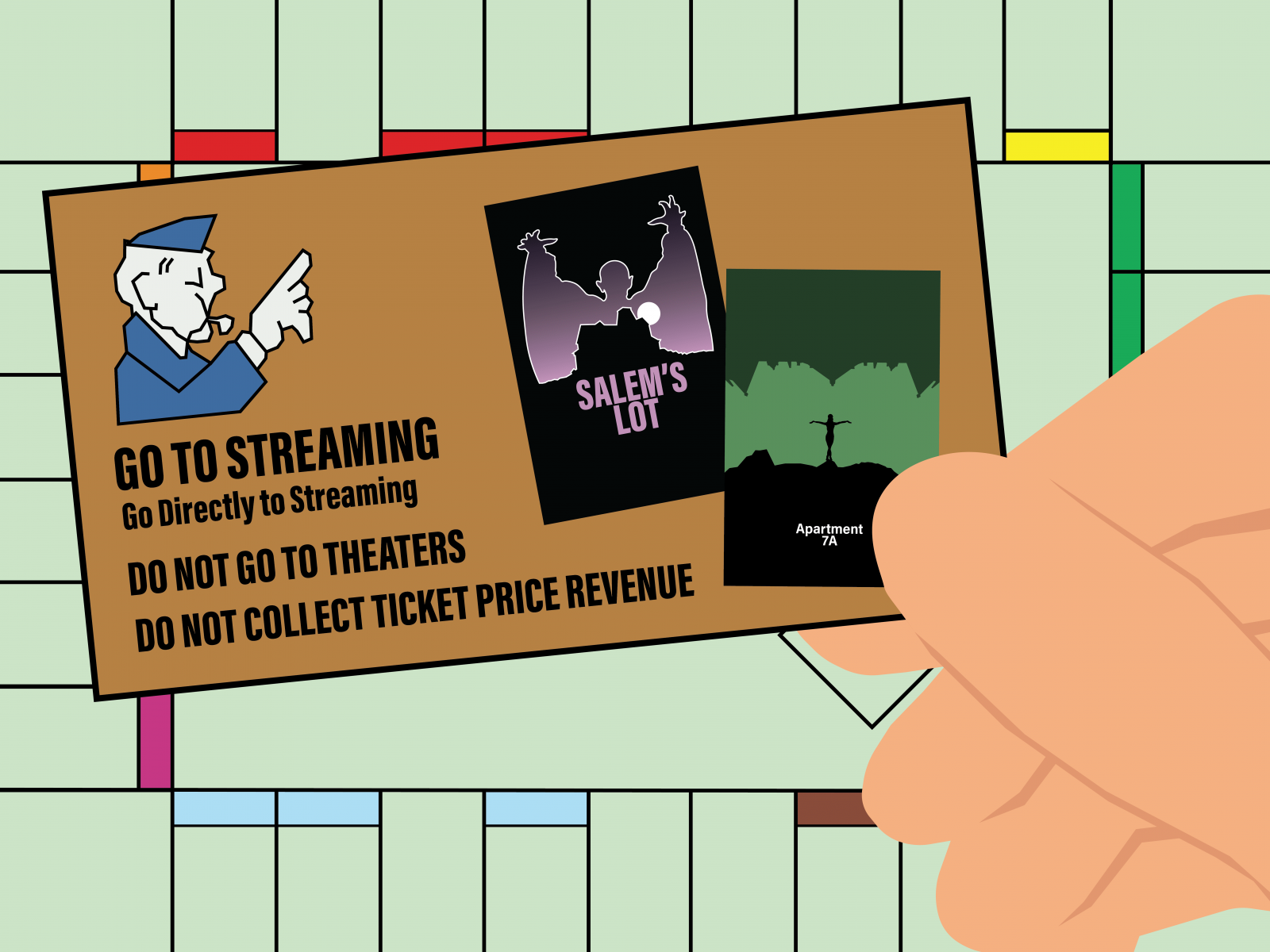In the Palme d’Or-winning movie “Anora,” director Sean Baker delivers more than a film. He crafts an immersive, unfiltered chronicle of a life on society’s margins. Through the protagonist Ani, a young sex worker from Brooklyn played by Mikey Madison, Baker draws us into a world that initially seems familiar but quickly reveals layers of absurdity, resilience and humanity.

Ani’s blend of street-smart grit, humor and vulnerability captivates from the outset of the film. Ani is not a one-dimensional figure — she’s complex, flawed and deeply human, challenging stereotypes attached to sex work. Baker doesn’t sugarcoat Ani’s world or sensationalize it.
Instead, he offers a glimpse into Ani’s life as a sex worker, showing the raw details of her night-to-night job. Underneath the blaring music and neon lights, we see the practiced detachment and the unexpected bonds Ani shares with her fellow dancers, all navigating a world that society often ignores or oversimplifies.
In contrast to the stereotypical “Cinderella story,” Ani’s world is one of survival — she’s certainly not waiting for a prince. She moves through her days and nights with purpose, interacting with clients and gossiping with co-workers, grounded and unapologetic in her work.
Her life takes a sharp turn, though, when she meets Ivan, portrayed by Mark Eydelshteyn, the prodigal son of a Russian oligarch. Ivan is wealthy, carefree and disconnected from reality in a way only extreme wealth can allow. He hires Ani because she speaks Russian — a minor detail that brings them into each other’s worlds.
Seeing Ani as an embodiment of the “American dream,” he invites her into his life of luxury, asking her to be his girlfriend for a week in exchange for $15,000. Ani agrees, and the two begin a whirlwind relationship that unfolds against the backdrop of high-end New York City parties and extravagant mansions.
What begins as a transactional relationship soon escalates into something more absurd. Lavish shopping sprees and carefree nights in an opulent mansion create an almost surreal world for Ani. Baker captures these scenes with a dreamlike rush, drawing us into Ani’s experience and letting us feel the allure and strangeness of sudden wealth.
Just as Ani begins to taste the luxuries of Ivan’s life, reality intervenes. News of their relationship reaches Ivan’s family in Russia, who see Ani as a threat to their status and control. His family, embodying a stark contrast to Ani’s carefree disposition, flies in allies determined to end the relationship and protect their image.
The second half of “Anora” takes a powerful, unexpected turn as Ani’s Cinderella moment becomes a twisted version of the fairy tale. Abandoned by Ivan and left to fend for herself, Ani faces the harsh realities of power dynamics, privilege and social hierarchies.
Here, Baker’s direction shines, exposing how power structures reduce people to disposable obstacles. Ani is forced to confront the judgment, dismissal and control that comes with wealth, revealing the humanity that often goes unnoticed in those deemed disposable.
As the story unfolds, Ani’s character deepens. Initially, she may seem like a young woman swept up in dreams of luxury, chasing a fairy tale that barely feels real. But Baker gradually strips away this veneer, exposing Ani’s core strength and dignity.
She transforms from a seemingly shallow character into a complex, resilient figure, facing hard truths about herself and her world. What begins as a superficial romance develops into a gritty, character-driven story that explores survival and vulnerability in a cutthroat society.
Madison’s portrayal of Ani is unforgettable, bringing the character’s blend of toughness and vulnerability to life. Ani’s unpredictability, humor and raw resilience makes her real and relatable — even as she navigates the absurdities of Ivan’s world. Madison’s nuanced performance gives Ani depth, allowing her to transition from brash confidence to quiet vulnerability seamlessly. She doesn’t conform to expectations, and her journey challenges viewers to question their own assumptions about strength and survival.
“Anora” marks another milestone in Baker’s exploration of marginalized lives. Like his earlier films, “Tangerine” and “The Florida Project”, “Anora” provides an unfiltered look at a lifestyle that mainstream cinema — and society in general — rarely portray with such empathy. Baker describes how there is often unfair stigma that is applied to this livelihood and excels at revealing the humanity behind labels, showing that people like Ani aren’t mere archetypes or background figures. He invites viewers to see the complexity of lives often defined by hardship, capturing their resilience and struggles without judgment.
A recurring theme in Baker’s work is the disposability of individuals in the eyes of those with wealth and power. “Anora” is filled with characters — dancers, clients, even Ivan’s wealthy family members — who are constantly trying to maintain stability in a world that values them only as long as they’re useful.
Baker’s portrayal of these one-sided relationships highlights the precariousness of Ani’s world, where survival depends on navigating connections that can change in an instant.
The film’s final scene is haunting — encapsulating Ani’s journey and distilling her resilience and tenacity. It’s a moment that captures everything she has endured and conveys a powerful sense of closure without overselling her struggle. As the screen fades, Ani’s story resonates, leaving viewers to reflect on the real people behind society’s facades and question their own perceptions.
“Anora” is an unexpected, beautiful film that balances humor with heartbreak.. It’s a story that lingers, challenging us to look beyond stereotypes and reminding us of the strength found in the unlikeliest characters.
Baker has created a film that feels both personal and universal, an exploration of humanity that doesn’t flinch from the gritty realities of life on the fringes. Through Ani, “Anora” invites us to reconsider what we think we know about dignity, resilience, and survival.
























































































































Bianca A. • Nov 5, 2024 at 11:15 am
Well, I think after reading this review I can’t wait to see it.